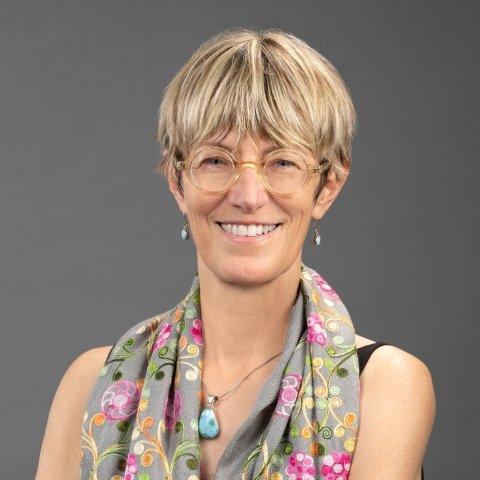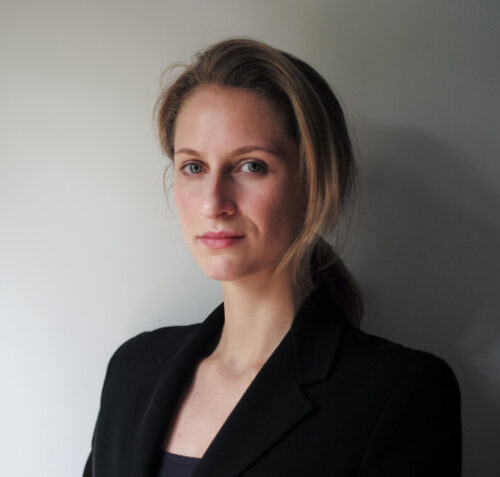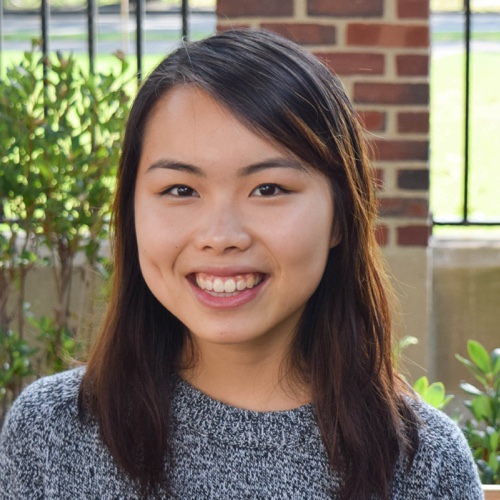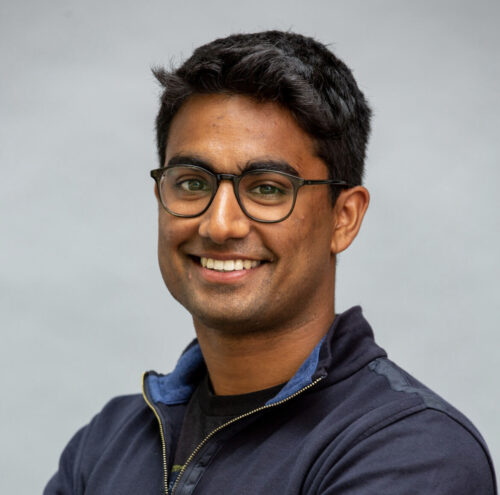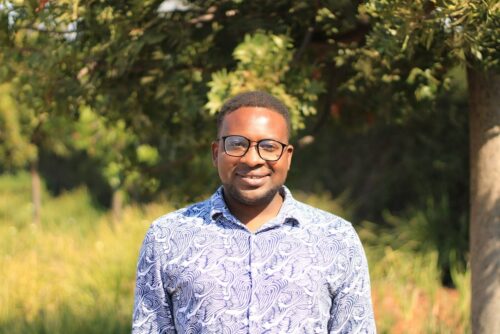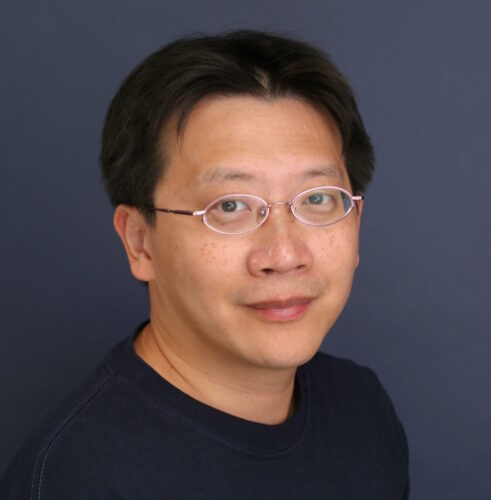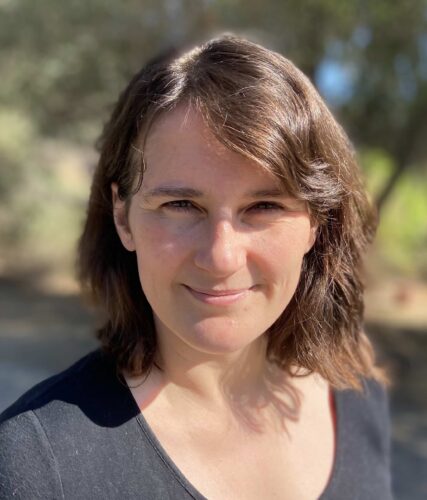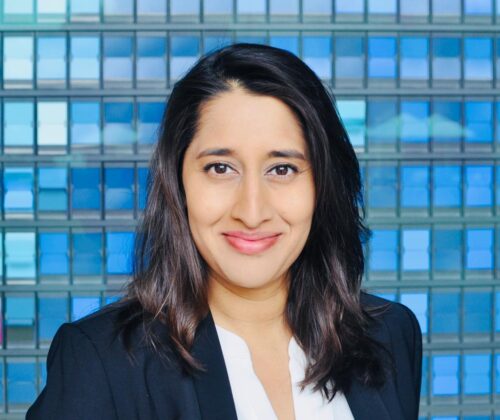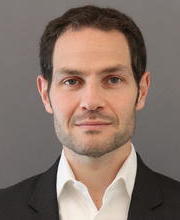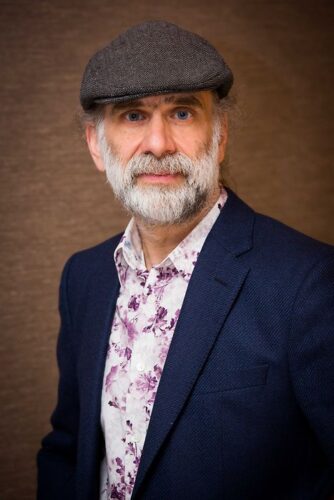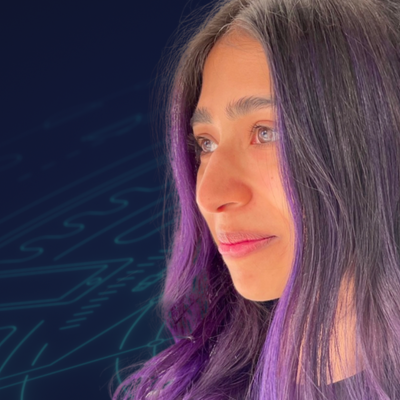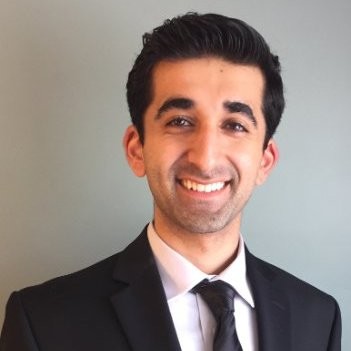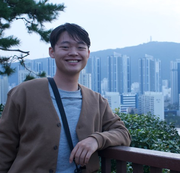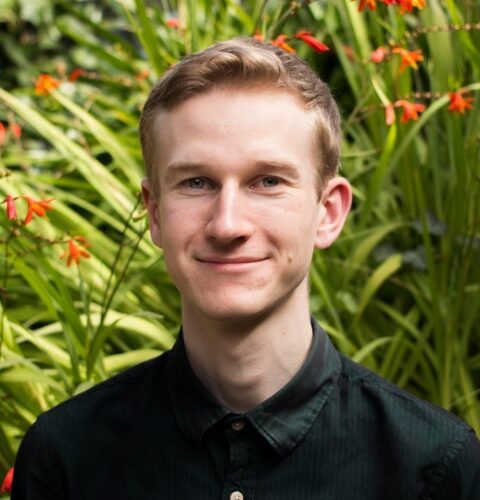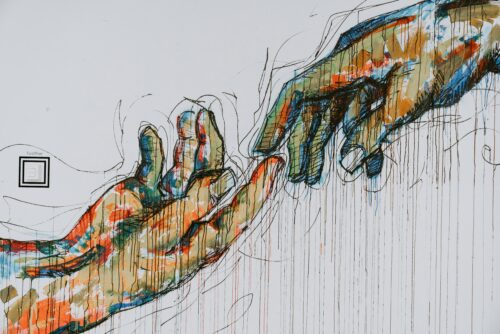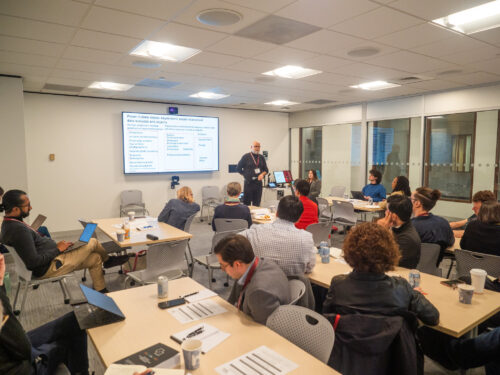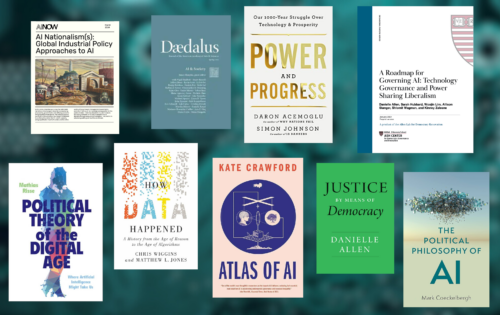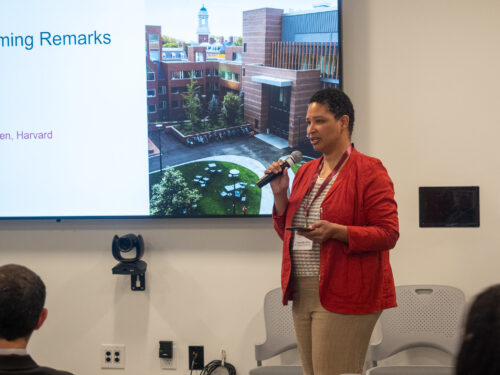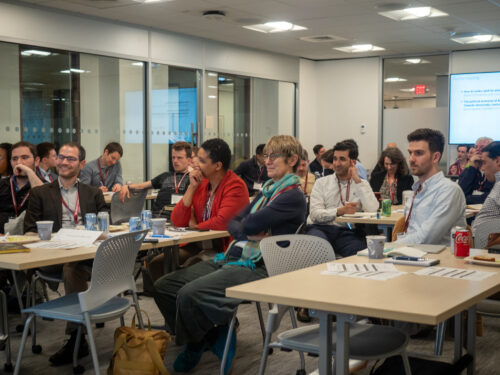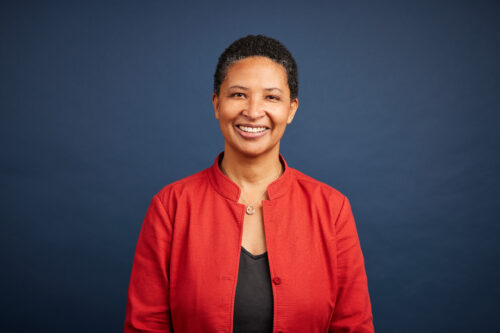
Danielle Allen
James Bryant Conant University Professor
A part of the Allen Lab for Democracy Renovation, GETTING-Plurality is a multi-disciplinary research network linking philosophers, social scientists, computer scientists, legal scholars, and technologists
Governance of Emerging Technology and Tech Innovations for Next-Gen Governance (GETTING-Plurality) is a multi-disciplinary research network linking philosophers, social scientists, computer scientists, legal scholars, and technologists. We are building a unique collaborative that unites tech ethics initiatives at Harvard University with external impact partners across higher education and the tech industry, bringing philosophers and ethicists to the table for every project.
The network is housed in the Allen Lab for Democracy Renovation.
We’re at a pivotal moment. To promote universal well-being, we need to promote the responsible governance of innovation and responsibly innovate the way we govern.
GETTING-Plurality seeks to advance understanding of how to shape, guide, govern, and deploy technological development in support of democracy, collective intelligence, and other public goods. Our focus is on how to do so, given the plural nature of human intelligence. We pursue foundational analysis and theory, field-building, and policy development to foresee and mitigate potential harms to democracy and to strengthen the public benefit and democracy-supportive effects flowing from technology innovation.
This network will convene multi-disciplinary teams to tackle questions of how to govern emerging technologies and how to deploy emerging technologies for governance from a multiplicity of viewpoints and expertise. Some of our research areas include:
James Bryant Conant University Professor
PhD, Senior Lab Director
Associate Director for Technology & Democracy
Senior Fellow, Allen Lab for Democracy Renovation;
Co-Director and Co-Investigator, GETTING-Plurality Research Network
Distinguished Fellow, Center on Privacy and Technology, Georgetown Law
Assistant Professor of Political Science and International Affairs, Northeastern University
Professor, Northeastern University
Non-Resident Senior Fellow, Allen Lab for Democracy Renovation
July 2024-June 2026
Junior Fellow, Harvard Society of Fellows
Co-Founder, Collective Intelligence Project
Researcher, Microsoft Research
Founder, Equiano Institute
Faculty Member, MIT and National Tsing Hua University
Professor of Philosophy, Australian National University
Research Scientist, Brigham and Women's Hospital and Harvard Medical School
Professor, Santa Fe Institute
Researcher & Lawyer
Founder, Remake Africa & Plurality Lead, School of Politics, Policy and Governance
Affiliate, Berkman Klein Center & Affiliate, Centre for the Governance of AI
Senior Fellow, Allen Lab for Democracy Renovation
Strategy, Microsoft
Postdoctoral Researcher, Meta FAIR & Affiliate, Berkman Klein Center
Faculty Director, Carr Center for Human Rights Policy & Professor, Harvard Kennedy School
Adjunct Lecturer in Public Policy
Co-Founder, Collective Intelligence Project
Physician Instructor and Clinical Informaticist, Rush University Medical Center
EthicAI and Former Visiting Fellow, Allen Lab for Democracy Renovation
Senior Fellow, Allen Lab for Democracy Renovation & Fellow, M-RCBG
Research Lead, Microsoft Research, Plural Technology Collaboratory & Founder, RadicalxChange Foundation
Postdoctoral Fellow in Psychology and Economic Theory, Harvard University
Former Co-Head of Corporate Strategy, Microsoft
PhD Candidate in Political Science, Yale University
PhD Candidate in Government, Harvard University
Researcher, Harvard College
PhD Candidate in Economics, MIT
PhD Candidate, King's College London
Additional Resource
As a part of the Allen Lab’s Political Economy of AI Essay Collection, Ajeet Singh explores how AI technologies deployed in the health care sector often orient towards the extraction of greater surplus revenues at the expense of patient health.
Additional Resource
As a part of the Allen Lab’s Political Economy of AI Essay Collection, Sarah Hubbard explores alternative ownership and governance structures for artificial intelligence that may better serve the public interest.
Commentary
Allen Lab for Democracy Renovation Senior Fellow Allison Stanger, in collaboration with Jaron Lanier and Audrey Tang, advocate for a “repeal and renew” approach to Section 230 in an effort to reform the current social media ecosystem.
Commentary
Allen Lab for Democracy Renovation Fellow Ami Fields-Meyer lays out research questions for developing a new U.S. tech policy agenda that puts people first.
Occasional Paper
Allen Lab for Democracy Renovation Fellow Alex Pascal and Vanderbilt Law Professor Ganesh Sitaraman make the case that public options for AI and public utility-style regulation of AI will enhance national security by ensuring innovation and competition, preventing abuses of power and conflicts of interest, and advancing public interest and national security goals.
Video
The “Building a Digital Democracy” panel brought together Audrey Tang, Megan Smith, Professor Danielle Allen, and Professor Mathias Risse for a conversation on how technology is being used to transform our political institutions.
Commentary
Allen Lab Senior Fellow, Allison Stanger, argues in the Journal of Free Speech Law that Section 230 is breaking the First Amendment.
Commentary
The GETTING-Plurality Research Network recently submitted a public comment on the NIST U.S. AI Safety Institute’s “Managing Misuse Risk for Dual-Use Foundation Models” draft guidance. The full text of the public comment can be found below.
Podcast
Check out the podcast episodes from the Allen Lab for Democracy Renovation’s Conference on the Political Economy of AI to glean insights from each panel.
Feature
This list, curated by the GETTING-Plurality Research Network at the Allen Lab for Democracy Renovation, highlights a mix of foundational texts and new thinking on the timely issue of how AI will impact democracy, especially as we head into election season.
Feature
Experts gathered at the Allen Lab conference to examine the incentives and structures of AI development, as well as to discuss the past, present, and potential future of steering AI towards better serving the public interest.
Feature
From misinformation to AI panic, experts joined the Allen Lab’s GETTING-Plurality event to discuss the threats the burgeoning technology poses to democracy.
Video
The GETTING-Plurality Research Network at the Ash Center’s Allen Lab and Connection Science at MIT Media Lab hosted a webinar event focused on “AI and the 2024 Elections”. In this session, we hear from Danielle Allen, Harvard University; Sandy Pentland, Massachusetts Institute of Technology; and Nate Persily, Stanford University. Each presenter gives a lightning talk, followed by audience Q&A.
Video
The Political Economy of AI Conference was convened by the GETTING-Plurality Research Network, a project of the Allen Lab for Democracy Renovation, housed at the Harvard Kennedy School’s Ash Center for Democratic Governance and Innovation.
Additional Resource
GETTING-Plurality Research Network members Allison Stanger and Woojin Lim, along with other authors, published “Terra Incognita: The Governance of Artificial Intelligence in Global Perspective” in the Annual Review of Political Science.



